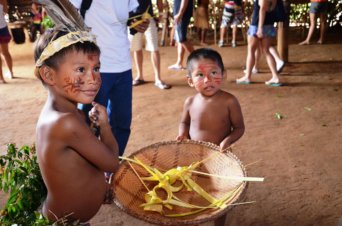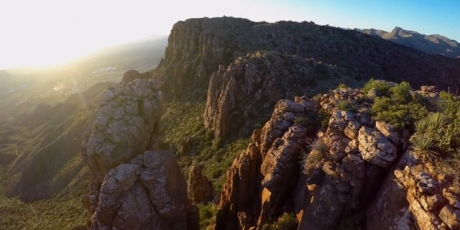- About
- Topics
- Picks
- Audio
- Story
- In-Depth
- Opinion
- News
- Donate
- Signup for our newsletterOur Editors' Best Picks.Send
Read, Debate: Engage.
| topic: | Indigenous people |
|---|---|
| located: | Brazil, Peru, Colombia |
| editor: | Ellen Nemitz |
“Yesterday was a very sad day for us, it was as if the sun had not risen.” This is how Sonia Guajajara, an important indigenous from Brazil, describes the feeling after the death of the third traditional leader due to COVID-19. According to Brazil’s Indigenous People Articulation (Apib, in Portuguese), until June 21, there were over 7,000 cases among more than 100 communities, with 330 deaths. This represents a rapid spread through an endangered population of less than 900,000 people.
The situation regarding COVID-19 is also worrying in other parts of Latin America: in Peru, for example, the tourism back in March was responsible for the beginning of its spread among some of the 55 original ethnicities. In Colombia, indigenous peoples affirm that the state did not look at them during the pandemic, leaving hundreds of people hungry and with no proper isolation conditions. In neighbouring Ecuador, the situation is no different, and the national confederation of indigenous peoples asked the government for data transparency, a cultural appropriated strategy on health, the immediate stop of all legal and illegal extractive activities in their territories, among other requests.
For centuries, indigenous peoples have been victims of different genocides. The violent colonization, the killing of people and culture, the nature devastation and the disrespect for their ancient knowledge are some of the practices that led them to near extinction. Today, it is possible to say that there is a new colonisation process happening, with indigenous territories being plundered in the name of a supposed development.
The arrival of COVID-19 in their homes is so dangerous because the majority of communities throughout Latin America have poor access or none at all to health facilities. Also, indigenous peoples have a different immunology system for external diseases – and that explains, partially, the decimation when Europeans came to the continent 500 years ago – so that they should be totally protected from coronavirus exposure. Despite some initiatives, both governmental (such as the binational committee between Colombia and Peru) and from civil society (for example the Covid Mission, which provides free online health assistance to Brazilian indigenous), the response is not coordinated as it should be and the situation keeps worsening.
In Brazil, the disease goes each time more into tribes carried by thousands of miners and loggers currently exploring Amazon. Considering the inaction of federal government, the photographer Sebastião Salgado has launched an online petition to denounce the ongoing genocide: “We have created an appeal to three powers [executive, legislative and judicial], we bought media space, because we believe there is a genocide, that is, an elimination of ethnicities and their culture,” he said during an Oxfam Brazil livestream. Salgado mentions that there is some help coming from other instances, such as the Supreme Court, for example, but underlines that “if there is no state protection, the genocide is authorized.”
Sonia Guajajara corroborates Salgado’s speech. She affirms that COVID-19 is not alone as a threat: “the pandemic came and reaffirmed many inequality situations, and in our case it deepened the violence and attacks we have been suffering historically.”
Image: Katiabraga

